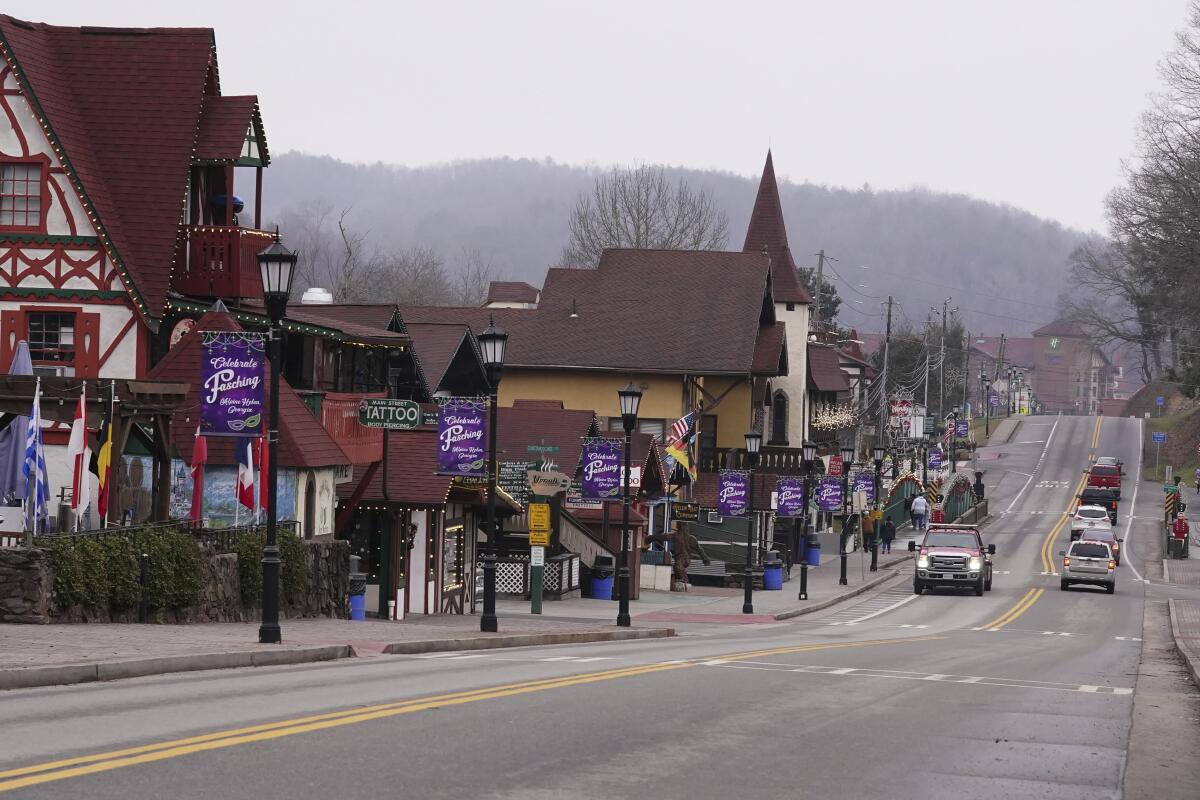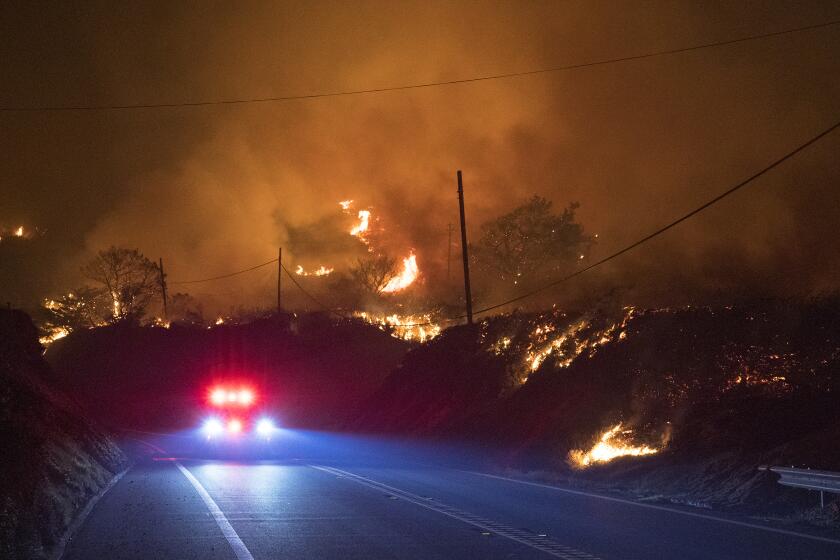‘Whoa, that’s not right’: Georgia towns lead census appeals

- Share via
When officials in Chester, Ga., heard that the 2020 census had pegged their small town at 525 people, their jaws dropped. They believed the town was almost triple that size and feared an inaccurate number could force them to make budget cuts.
“I said, ‘Whoa, that’s not right,’” City Clerk Melanie McCook said. “The first thing I thought is, ‘This is going to affect our revenues greatly.’”
Chester and two other small, rural municipalities in Georgia are the first communities in the U.S. to challenge the accuracy of their numbers from the once-a-decade head count. Successful challenges are scant, but the outcome could determine whether Chester, the city of Glennville and White County get their fair share when it comes to the distribution of $1.5 trillion in annual federal funding.
The fire was reported around 7 p.m. in the Palo Colorado Canyon area, authorities said.
In the foothills of the Blue Ridge Mountains, White County officials were stunned when the 2020 census said the county had 28,003 residents. A Census Bureau estimate from 2019 had put the county’s population at 30,798. The county is home to the town of Helen, a tourist draw modeled on a Bavarian alpine village.
An analysis by the Georgia Mountains Regional Commission, a nonprofit agency that provides planning help to communities in the region, said half of the county’s census blocks had incorrect housing counts. Although the 2020 census put the number of homes at 13,535, it should have been 15,286, according to the analysis.
“We are concerned about long-term impacts, not qualifying for grants, not getting as many dollars as we need for our schools, those kinds of opportunities that come when the census count is used,” said John Sell, director of White County’s community and economic development.
Both Glennville and Chester are home to state prisons, which became among the most difficult places to count — along with college dorms, nursing homes and military barracks — as the coronavirus spread throughout the U.S. during crucial weeks for the census in the spring of 2020. Students were sent home from campuses, and prisons and nursing homes went into lockdowns when those residents were supposed to be counted.
In Georgia, inmates are supposed to be counted where they are imprisoned. About a dozen other states are planning to count prisoners at their home addresses when it comes to drawing political districts.
Because of the challenges pandemic lockdowns posed to these “group quarters” counts, the Census Bureau has proposed creating a separate program to accept challenges for dorms, military barracks, nursing homes and prisons. The local officials in Georgia aren’t waiting around.
In Glennville, where more than a third of the population is Black, the 2020 census counted 3,834 people. The 2019 estimates said there were 5,066 people, and Glennville officials say the 2020 number should be more than 5,300 residents because they believe the 1,500 or so inmates at Smith State Prison weren’t counted.
“It’s not that they did anything wrong. It was just an oversight. You had to take into account we had COVID and people weren’t allowed in or out,” Stan Dansby, Glennville’s city manager, said of the prison.
A combination of the pandemic and a lack of reliable broadband for filling out the census questionnaire online may have led to discrepancies in the counts in rural Georgia, said Heather Feldman, executive director of the Georgia Mountains Regional Commission.
“Unlike many areas of the country, Georgia was seeing extremely high cases of COVID-19,” Feldman said in an email. “Unlike the metro areas where population is dense, door-to-door census counters may not have gone to harder to reach areas of rural counties.”
The scope of appeals allowed by the Census Bureau is narrow — mistakes in recording boundaries or housing skipped during data processing. Revisions to population and housing totals were made to about 1% of the nation’s 39,000 governments after the 2010 census. The census challenges won’t change the number of congressional seats each state gets or the numbers used for redrawing political districts.
Other communities have signaled they plan to challenge their census numbers, including several college towns and the cities of Boston and Detroit.
In the case of Chester, about halfway between Atlanta and Savannah, the 2020 census said it had only 525 people, which would mark a 67% decline in the population over the decade if it were true. The 2019 American Community Survey pegged the majority-Black town’s population at 2,102 residents, and city officials believe it has a minimum of 1,500 inhabitants.
Chester officials believe the head count missed not only inmates at the Dodge State Prison but also residents in the town’s homes.
Without a large property tax base or much in business taxes, Chester relies on a state-run program in which counties share sales taxes with cities as well as a tax on insurance premiums. Both sources of revenue are tied to the population of Chester, which spends about $350,000 per year on its operations but is scrambling to adjust to the lower-than-expected number even as it seeks an adjustment.
“It was a budgeting nightmare for me. I have no idea when this will be straightened out,” said McCook, Chester’s city clerk. “We are kind of, for the time being, only spending money on the necessities, stuff that you absolutely have to have. We are hoping it will be resolved before we have to make any major budget cuts.”
More to Read
Sign up for Essential California
The most important California stories and recommendations in your inbox every morning.
You may occasionally receive promotional content from the Los Angeles Times.











